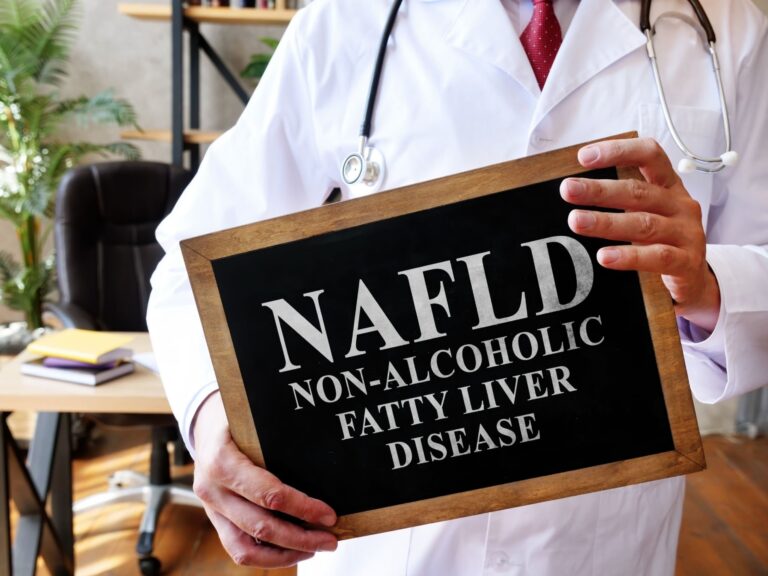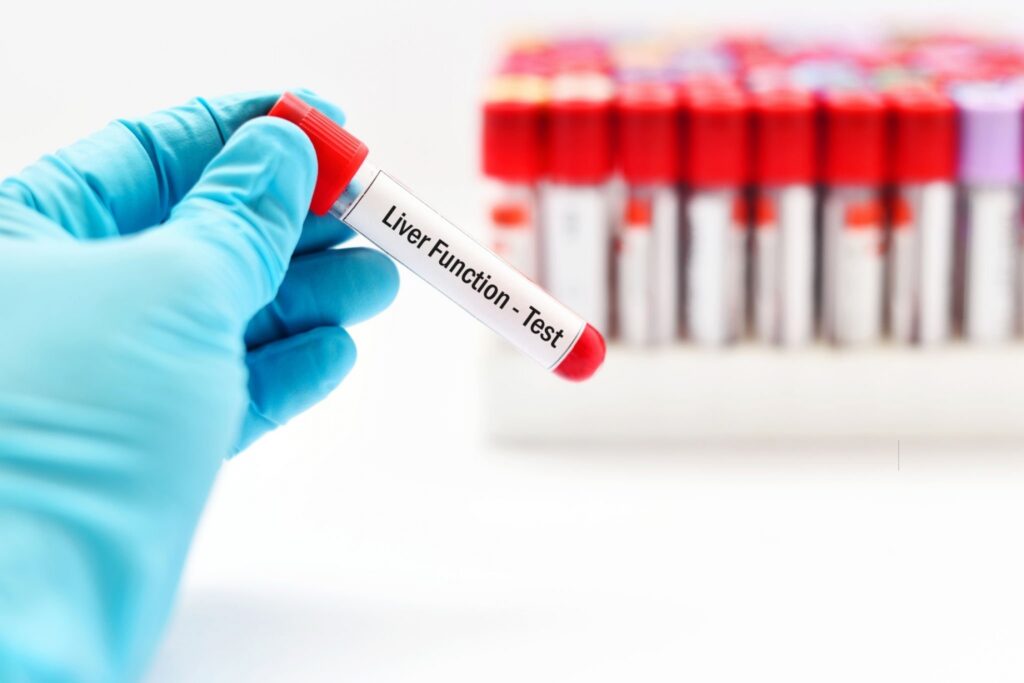PCOS – Polycystic Ovarian Syndrome is a hormonal disorder that affects women of reproductive age including pregnant women. You may experience irregular menstrual cycles and metabolic issues like excessive hair growth, acne and weight gain. But do you know that PCOS is also connected with increasing liver problems like Non-alcoholic fatty liver disease?
What Exactly Is This NAFLD?

Non-alcoholic fatty liver is a condition where excess fat is accumulated in the liver with no to minimal alcohol consumption. This causes inflammation of the liver at the initial stages, which can cause liver cirrhosis, leading to permanent liver damage when left untreated.
NAFLD mainly occurs due to changing sedentary lifestyle factors, having unhealthy food with fewer bodily movements, leading to fat deposits in the liver.
Why Does It Become a Concern?
Obesity, insulin resistance and excessive production of male hormones ( testosterone) are common conditions in PCOS leading to high cholesterol, high blood pressure, etc.
Most people with NAFLD do not have any concerning symptoms. If you are a person with PCOS, getting tested for NAFLD as early as possible is important to prevent the risk and follow prompt lifestyle modifications to cure non-alcoholic fatty liver at an early stage.
Is Your Liver at Risk?
Your liver is an excellent organ performing multiple functions, including supporting metabolism, digestion, detoxification, storage and supportive immune functions, all effectively. It removes the toxins by filtering them out, producing bile to help digest fats, which is the most important function in preventing fat accumulation in the liver. When the healthy liver cells are damaged for a prolonged time and replaced by scar tissues, the liver loses its ability to perform all of its functions effectively, posing a threat to the body.

PCOS and Insulin Resistance: The Trigger
One of the key factors connecting PCOS and fatty liver is insulin resistance. Many women with PCOS have elevated insulin levels, which affects the blood sugar levels and triggers the liver into producing more glucose, leading to trouble.
Early Diagnosis and Treatment: The Key to Healthy Liver
Elevated liver enzymes detected through liver function tests or biopsy can tell you if your liver is at risk, but only at the later stages of liver damage.
Living with PCOS and NAFLD: You are not alone.
If you are a person living with PCOS and NAFLD, remember that you are not alone.
43% of PCOS patients are diagnosed with non-alcoholic fatty liver, as per a study. But there are certain things that you can do to reduce the risk and manage both conditions, including;

- Maintaining healthy weight
If you are overweight or obese, losing 10% of your body weight every month can help prevent fatty liver.
- Eating healthy diet
A healthy liver and PCOS-friendly diet rich in fibre, whole grains, fruits and vegetables is important in your everyday diet. Avoid processed food, unhealthy fats and sugary drinks.
- Exercising regularly
Exercising helps with insulin sensitivity and helps in reducing excess fat in your liver. So aim for at least 30 minutes of moderate-intensity workouts or strength training most days of the week to keep yourself active.
- Managing your blood sugar and cholesterol levels
If you are a diabetic or pre-diabetic, managing and keeping your blood sugar and cholesterol levels in balance is important. This prevents your risk of NAFLD.
- Reduced alcohol intake
Alcohol consumption slowly damages your liver and affects its metabolic activities sooner or later. Reduce or completely avoid consuming alcohol for a healthy liver.
- Quit smoking
Smoking is harmful to your overall health, especially your liver and lung health. If you are a person who smokes, quitting is the best thing you can do for your health.
- Get tested for your liver regularly.
Liver function tests are the sure-shot way to diagnose if you have any abnormalities in your liver since your liver disease will exhibit no symptoms even though it’s affected. To prevent it from becoming fatal, diagnose and manage the condition at an earlier stage.
Following these simple lifestyle changes could help you manage PCOS and eliminate NAFLD in the long run.


